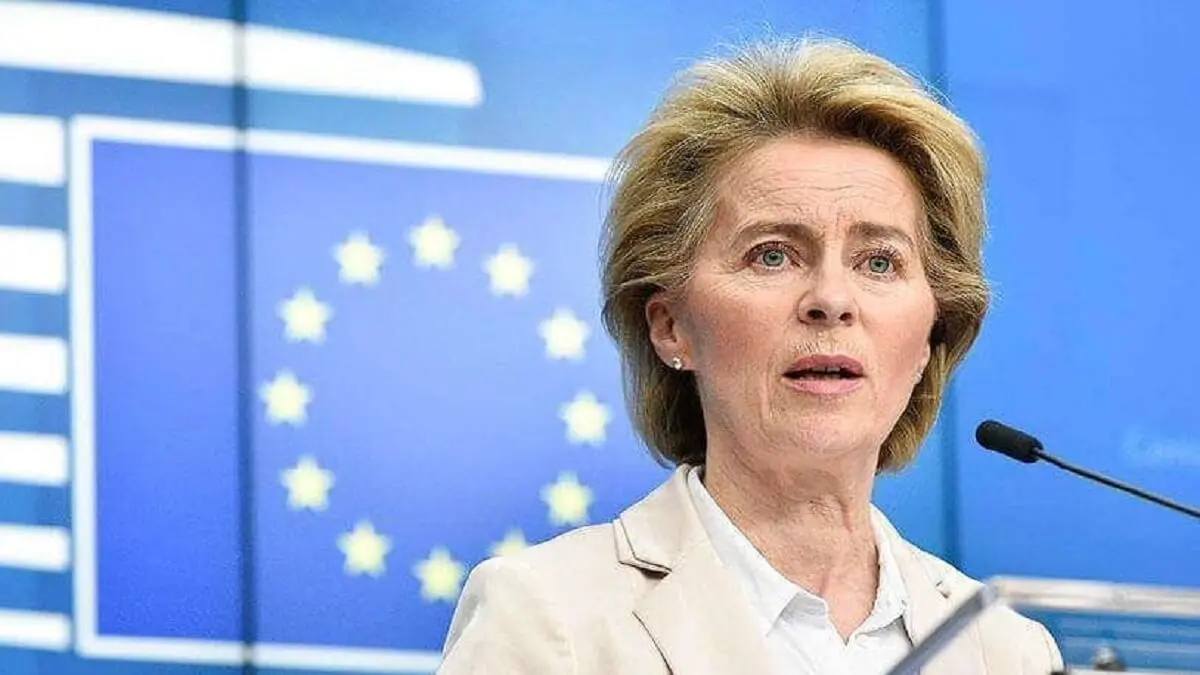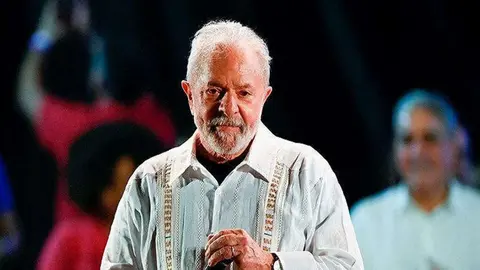The European Union will not let China take over Latin America

The European Union (EU) has been distanced from Latin America for almost ten years, uninterested in hearing from its respective governments about the situation they are going through, and has suddenly regained an unusual interest in the region and wants to relaunch EU-Latin American relations. To such an extent that it is analysing the possibility of setting up a representation in the region.
It is China's unusual advance in the region, with its investments and overwhelming commercial capacity, that is now worrying Ursula von der Leyen, President of the European Commission. So much so that, over the past eleven months, advisers to European bodies in Brussels have repeatedly put on the table the need for the EU to look across the Atlantic again. Not to increase the flow of investment, but to change the tone of the strategy for a region that increasingly finds ideological affinities with Chinese and Russian influences.
Not for nothing did von der Leyen, in her 2022 State of the Union address, repeatedly insist on calling for unity among all EU partners to create a strategy and invest in 'the power of democracies' and build a like-minded bloc.
There are more ideological and political (than economic or commercial) interests, although Brussels has already announced that there will be a series of relevant announcements in the framework of the Global Gateway strategy, in the tour that Von der Leyen began in Brazil. The European representative has had to wait for a change of political tone in Brazil to avoid having to meet with Jair Bolsonaro. In part, the rapprochement has also been delayed by the pandemic.
The executive will come face to face with Luiz Inácio Lula da Silva, who has returned to power in Brazil with the clear intention of becoming a regional and international leader. He has been one of the few Latin Americans who has dared to propose and agree on a peace plan between Ukraine and Russia.
Brazil is the tenth largest economy in the world by GDP and the largest in Latin America. It is not surprising that Von der Leyen chose it as a first destination of arrival.
On Tuesday 23 June, the EC President will fly to Buenos Aires, to strengthen ties with President Alberto Fernández and take part in the EU-Argentina Business Forum; and the following day, she will arrive in Santiago de Chile, for a meeting with President Gabriel Boric and a visit to the Chilean company Comberplast, dedicated to the recycling of plastics.
On Thursday 15 June, Von der Leyen will be in Mexico City and, as confirmed, will meet President Andrés Manuel López Obrador. This is a highly anticipated meeting, not only because Mexico is the fifteenth largest economy in the world and many European countries have important investments in the Aztec country, but also because the Global Agreement between Mexico and the EU is still pending approval.
The meeting between López Obrador and Von der Leyen is likely to be a clash of equidistant visions; the former does not even speak English and sees the Europeans as historical and recidivist exploiters and plunderers.
On the subject
China finds it helpful in the region that it does not have a colonialist past with Latin Americans and, ultimately, the diplomacy of anti-COVID vaccines, applied by both Beijing and Moscow, has been a doorknob for reconnecting with several Latin American governments. The region saw the US first vaccinate its people with vials whose per capita cost exceeded the budgetary expectations of many Latin American countries' coffers.
And the EU is also handicapped by the delay in its decision-making. It is a heavy and slow-moving elephant: twenty-three years of negotiations on an EU-Mercosur trade agreement have been a drag on Von der Leyen's sales pitch that Europeans care about their Latin partners.
Mercosur has been repeatedly failed by Brussels: on 28 June 2019, the EU and Mercosur reached a political agreement to establish an interregional trade agreement as part of a broader Association Agreement between the two regions. And it has never entered into force because it has not been voted in the European Parliament, partly because it is opposed by more than a dozen EU member states.
With Mexico, it has been modernising its trade agreement since 2016 and has not been able to come to fruition either, despite the fact that on 21 April 2018 the EU and Mexico reached an agreement in principle "on a modernised trade pillar" of the Economic Partnership, Political Coordination and Cooperation Agreement between the EU and Mexico, also known as the Global Agreement, which has been in force since 2000.
It is assumed that, during the Presidency of the European Council, which will be held by Spain in the second half of the year, both issues will be discussed, both the fate of the Mercosur-EU agreement and the modernised EU-Mexico agreement. And, moreover, with the intention of unblocking them.
Whether they are apples or pears. What will take place in Brussels on 17 and 18 July will be the Third Summit of the Community of Latin American and Caribbean States and the EU. Brussels wants to return to the era of constant summits and exchanges of ideas and proposals; although, if it wants to seduce the leaders in office, it will have to open its pockets by promising generous investments in the region.


